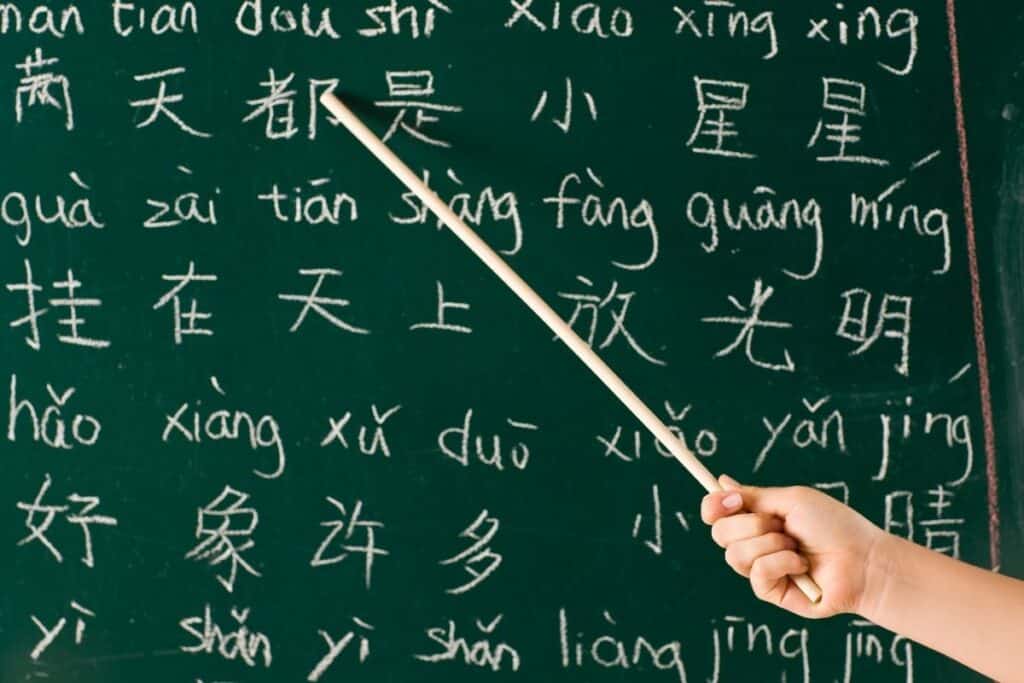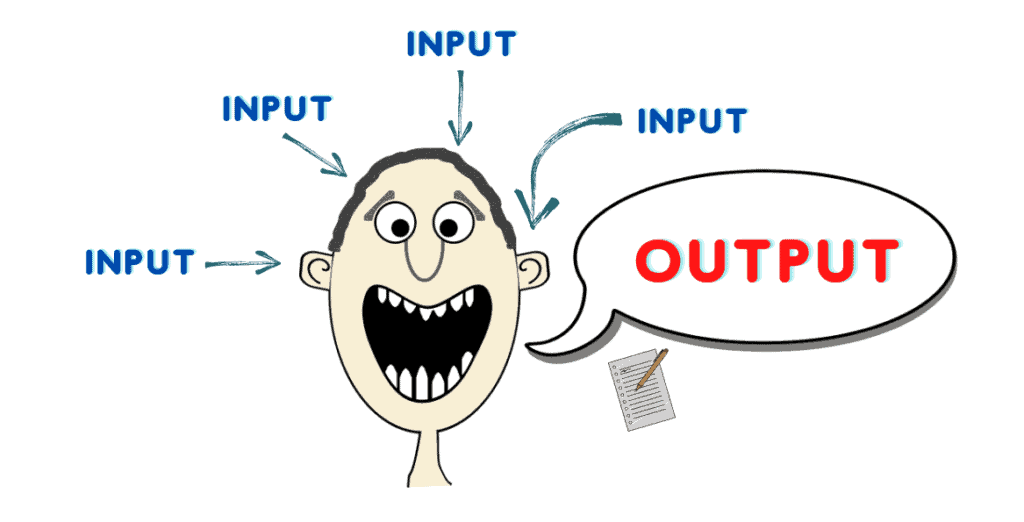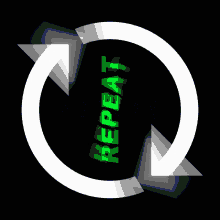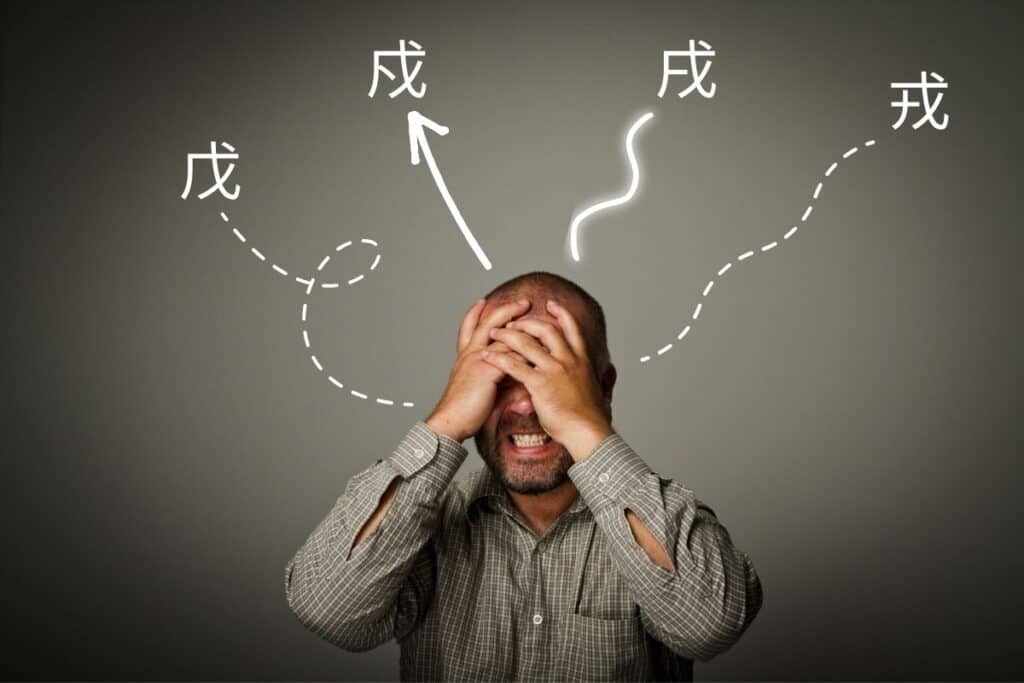
I began learning Mandarin Chinese at the ripe old age of 26, and I’ve spent a lot of time researching the best way to do it.
We’re talking hundreds of hours of Googling to find the best learning resources, study hacks, and the secret holy grail of Mandarin learning (which doesn’t exist).
Through a lack of patience, laziness, and arrogance, I ignored a lot of the best and most commonly offered advice from those who’d achieved exactly what I wanted to achieve. I did this because I thought I knew better, but I didn’t.
You see, all of the information you need to know about learning Mandarin Chinese is already out there. It was already there when I started learning, too.
This post isn’t intended to teach you a new idea or introduce a logical new study hack or show you a secret app that will make you fluent in 4 days.
This post is me begging you not to make the mistakes I made in order to save yourself time and pain.
If you want to learn Mandarin from scratch, don’t be overzealous and skip the basics in order to speed things up. In almost every case, this will come back to haunt you. You need to develop good learning habits and a solid routine at some point if you want to reach a high level, so you might as well establish those things from the very beginning.
Actually Learn the Pinyin System
The first step in learning any new language is familiarising yourself with how it sounds, and this usually consists of consuming media in your target language.
I remember watching the movie ‘Hero‘ with Jet Li way back in the day and thinking, ‘This isn’t how I expected Mandarin to sound like.’
If you’re a native speaker of a European language and you’re learning Mandarin, you’ll realise quite quickly that it’s very different from what you’re used to. For example, Spanish might sound unfamiliar to a native English speaker from England, but Mandarin will probably sound really unfamiliar.
Not only that but the writing system of Mandarin is pictographic and has no alphabet. So, looking at characters gives you no clue on how they sound (not as a beginner, anyway).
This is where the pinyin system can really help you springboard your early success in Mandarin.
Not only will learning pinyin help you learn to read characters as a beginner, but it will familiarise you with all of the different sounds you’ll encounter in Mandarin Chinese.
Don’t neglect pinyin as a beginner.
You might have lofty ambitions (I did) and want to breeze right past it, but at some point, you’re going to have to engage with it to improve your listening and pronunciation. Concentrate on building a solid foundation in Mandarin, and make learning pinyin the first thing you do.
Learn to Write Radicals and Components
Most foreign learners of Mandarin Chinese don’t learn to write Chinese characters by hand. This is understandable, as it is the most time-intensive aspect of learning Mandarin and brings with it the least practical reward.
I only know how to write a couple of hundred characters by hand at the most, but I can read, recognise, and type thousands of them. I don’t say this to flex – I say this to tell you it’s quite common, even for Chinese people. Most of my time is spent acquiring Mandarin through listening and reading so I can use it to communicate.
Although it’s daunting to know the average educated Chinese person knows around 8000 characters, things are made better when you realise all Chinese characters are made up of the same 200 radicals and components (roughly).
I’ve written an article on radicals and components which can be found here, but the video below will give you a solid intro.
What if I just Skip Learning Radicals and Components and go Straight to Characters and Words?
If you spend the time learning these radicals and components, it will make learning new Chinese characters and words much easier in the future.
Specifically, knowing the components well makes it easier to decipher the meaning of new characters and makes it much easier to distinguish between similar characters.
Let’s take the radical of 氵which means ‘water’. You will see this component in many different characters that are associated with water, for example:
| English | Chinese | Pinyin |
| sea, ocean | 海 | hǎi |
| flow | 流 | liú |
| river | 河 | hé |
| wine, spirits, liquor | 酒 | jiǔ |
But what about those pesky characters that look way too similar to others? If you don’t learn the radicals and components sufficiently well enough (like me) you’ll mistake these characters for each other all the time.
Can you see the differences in the following characters?
已 —— 己 —— 巳
土 —— 士
未 —— 末
兵 —— 乒 —— 乓
哀 —— 衰 —— 衷
戊 —— 戍 —— 戌 —— 戎
If you know the components and radicals well enough, you certainly notice the subtle differences. If you don’t, you’re always going to have problems.
Start Reading and Listening ASAP
The most bang for your buck when it comes to learning Mandarin Chinese doesn’t come from the money you spend on a course, the quality of a private tutor, or your natural talent.
It comes in the form of time spent with the language. This means using your eyes and ears to acquire the language. This means a lot of reading and listening.
Now obviously, as a beginner, you aren’t able to understand anything you hear or read. But the key is to get to a stage where you can as fast as possible. Once you can read and listen extensively, that’s when the compounding effect of time with the language causes your progress to skyrocket.
How Do I Start Reading And Listening From Scratch?
Luckily, there are more materials for language learning newbies than ever before. Instead of going deep into how you can get started as a beginner in this post, I’m going to make a list of articles where I’ve covered the topic in more detail.
- The 25 Best Mandarin Chinese Study Resources for Beginners
- The 21 Best Apps For Learning Mandarin Chinese
- Learning Chinese: The Best Textbooks For Beginners
- 100 Mandarin learning Resources – Reading
- Learning Chinese: 15+ Listening Tools Perfect for Beginners
- The 5 Best Apps For Learning To Write Chinese Characters
- 7 Useful Tips for Improving your Chinese Handwriting
Don’t Worry About Speaking… Yet
As a beginner, you don’t need to speak as much as possible.
You don’t.
You don’t need to pay a private tutor a lot of money to tell you how to say, “Hello. I like eating apples” either.
I don’t want to be too hard on language tutors here. There are benefits to a tutor. I have used Mandarin tutors in the past and I’ve been an English teacher myself.
However, as a beginner, you need to familiarise yourself with the language by listening, reading, and independently working your way through level-appropriate material.
Private Tutors and Classes
“But Mr. Languagespud, what about speaking? I need a tutor to know if I’m saying it right!”
The idea you need to speak as much as possible right from the beginning of your language learning journey is total nonsense and some of the worst advice given to newbies.
If you really want to, you can pay a tutor to drill the pronunciation of a word you could otherwise hear someone saying on YouTube for free. You can join a class and have a teacher ‘talk you through’ a textbook that’s right in front of you. By all means, go out into the street and say “Hello!” to 1000 people if it makes you feel better for ‘practicing speaking’. You’ll be great at saying “Hello” by the end of the day.
But if you’re wondering why you’re unable to have a conversation with someone in Mandarin yet, it’s not because you haven’t opened your mouth enough.
It’s because you don’t know enough Mandarin Chinese yet.
Forcing people to speak in a language they haven’t acquired yet is confusing, wastes valuable time, and is very demotivating.

Get Comfortable With Repetition
Language learning has frequently been described as a similar pursuit to bodybuilding.
You head to the gym, do the same exercises, gradually increase the intensity, then eat, sleep, repeat. Then, months and years down the line, you end up ‘swole’ like Nat King Cole… or something. Language learning works much in the same way.
If you want to learn Mandarin Chinese, repeated exposure to the same material will form a big part of your progress.
For example, unless you’re Rain Man, if you read or listen once to an article in Mandarin that has a lot of new language in it, you aren’t going to remember it. Nearly every advanced learner of a language will tell you they have repeatedly consumed the same material in order to learn.
How to Use Repetition in your Studies: A Practical Guide
Let me give you an overview of how I prepared for HSK 6.
- I uploaded a text file for every chapter of both HSK 6 textbooks to my Pleco app.
- I downloaded the audio files for every chapter of both textbooks to my phone.
- Starting from the beginning, every week I would read the same chapter of the textbook multiple times a day. Usually between 3-5 times, sometimes up to 10.
- Every day, I would listen to the same chapter as many times as possible. Between 10-20 times.
- I would save all unknown words as a flashcard in Pleco and study them daily.
- A few weeks later, I would go back, read and listen to the same chapter again to refresh.

By the end of the week, I had consumed the same chapter of the textbook easily over 100 times.
I knew the material to the point where I could shadow the audio very well and I was comfortable with every word and sentence structure.
Now, I get that this rinse/repeat stuff doesn’t sound like the most riveting activity. This isn’t the only way to learn, either.
That’s why exposing yourself to the language in other, more enjoyable ways is also recommended. You can listen, watch, and read anything in Mandarin whenever you want. Just find stuff that’s roughly at your level!
Just remember that repeated exposure is key to learning a new language.
Identify a Long-Term Goal
If you want to get to a high level of Mandarin Chinese, you need a reason to do so. It takes thousands of hours of study to reach an advanced level, so your reason needs to be a bloody good one.
The best reason for learning Mandarin, or any language, or anything at all, is because you simply love to do it. It makes every aspect of learning so much easier.
However, a lot of people (including myself) probably don’t absolutely love learning Mandarin. I mean, I have grown to enjoy it a hell of a lot more as I’ve improved, but it’s not the same as going to a waterpark or taking MDMA.
That’s why it’s essential to have a long-term goal that you can clearly envisage as a result of learning Mandarin.
You can be as creative as you want when finding your ‘why’. It doesn’t matter, as long as it matters to you. If you don’t pick a good one, you’re going to end up on the very large heap of quitters in no time at all!
The following are some common examples:
- You have a Chinese partner and want to be able to communicate with their family.
- You might want to be able to use the language in a working capacity.
- You might be living in China or Taiwan and want to communicate with locals.
- You might want to create an online business and make stupid videos on YouTube dubbing over popular media in Mandarin chinese (me).
Learning fluent Mandarin is a long journey, made infinitely easier by having a purpose for doing so.
Get Comfortable With Frustration

If you spend thousands of hours reading, listening, writing, tripping over your words, studying grammar rules, etc. you are going to become frustrated at some point.
Deal with it, bitch.
Actually, my preferred generic phrase of advice should be, “Feal the frustration and do it anyway.”
If you spend hundreds of hours learning Mandarin and it’s just constant pain, then you can give up knowing you gave it a good shot. This isn’t a disaster. It’s not for everyone, and you only get one life. Don’t spend it doing something you hate.
However, if you still have that burning desire to know the language, but you hate what you’re doing right now, then don’t worry.
This is normal. Mandarin is hard.
I can’t tell you how many times I’ve thought to myself, “Screw this! I’m going to learn the guitar or surfing instead!” and then thrown my book or phone at the wall. After a break and a biscuit, I calm down, try again, and realise I was just being a drama queen.
I’ve thought about quitting many times, but I’m very glad I didn’t. Learning Mandarin has brought so much to my life that I never thought possible. It takes a while, but you will reach a day when you realise what it was all for.
In the words of the great philosopher Paris Hilton…
“Dare to dream.”
Summary
As a newbie, I wasted time. I didn’t learn radicals and components, and I didn’t read and listen anywhere near enough. As a result, I wondered why I couldn’t read characters or understand anything I heard…
Don’t be like me.
Don’t waste your valuable time making avoidable mistakes and adopting bad habits that all advanced learners warn you about. Forming the above habits will set you up long-term to learn Mandarin with the right attitude.
Learning Mandarin to a high level is a big commitment of both time and effort.
Don’t make it any harder than it has to be!
Further Reading
- 100+ MANDARIN LEARNING RESOURCES: THE FASTEST WAY TO FLUENCY
- Learn Chinese for FREE | Free Apps, Sites, Courses, and Media
- The 21 Best Apps For Learning Mandarin Chinese
- THE ULTIMATE GUIDE TO LEARNING CHINESE IN CHINA
- 14 REASONS WHY YOU SHOULD LEARN MANDARIN CHINESE
- STUDYING MANDARIN AT A UNIVERSITY IN CHINA: WHAT YOU NEED TO KNOW
- 100+ PODCASTS FOR LEARNING CHINESE | BEGINNER TO ADVANCED MATERIAL
- 101 TV SHOWS FOR CHINESE LEARNERS
